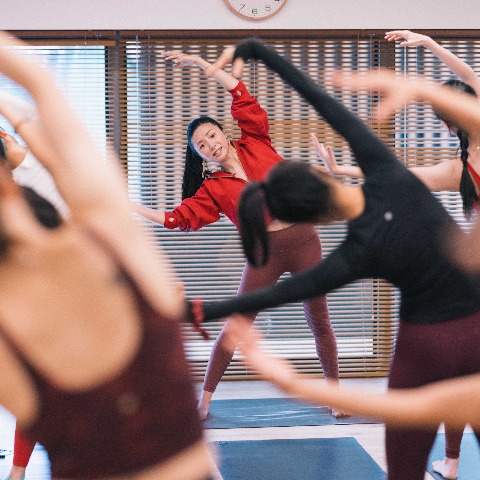



Lululemon Athletica Inc, a Canada-based athleisure apparel company, is expecting China to become its second-largest market worldwide by 2026 through new store openings, an expanding product portfolio and enhanced omnichannel community engagement.
The maker of yoga leggings, training outfits and footwear plans to triple the number of stores on the Chinese mainland from the current 71 to 220 in five years, said CEO Calvin McDonald, who acknowledged being "grateful to and excited about" the success and prospects of its China growth story.
"Our new goal is to quadruple our international business again by 2026," McDonald told China Daily in an exclusive interview. "The Chinese mainland will be a big part of that opportunity as we continue to invest in the market, in stores, in digital and build a community."
With an estimated global sales of $12.5 billion by 2026, McDonald's said the company is in good shape, propelled by both robust online figures due to COVID-induced store closures and a strong in-store comeback that's on par with its pre-pandemic performance.
Currently, Lululemon is on track to quadruple its international revenue relative to 2018 by the end of the year, in which China has already "played a major part". A survey published in April suggested that Lululemon's unaided brand awareness in the region stood at 7 percent, which McDonald believed demonstrated ample space for growth.
During an investors' day in April, executives detailed the new store opening strategy as a combination of flagship stores with full lineups and community-based stores featuring core products. It will unfold by building up a presence across relatively affluent first-tier cities like Beijing and Shanghai before penetrating second or third-tier cities at the right time.
McDonald has also dispelled concerns such as COVID-induced lockdowns, saying these are "short term in nature". "Given the strength of our business, we've been able to continue to invest in our business and our people in China," he said.
Chinese guests are typically mid to high-income earners who are generally younger than those in North America, the executive said. He believed one key focus of business success is through resonating with the Healthy China initiative, a government-led agenda to advance health and development as the prerequisite for economic and social growth.
"We are committed to supporting the well-being of people and communities through physical, mental and social dimensions, which is very much aligned with the Healthy China priorities," he said.
It has, for instance, created a so-called ambassador group typically made up of yoga instructors, social media influencers and elite athletes, to lead complimentary in-store classes, hence adding to customers' emotional connection with the brand that upholds the "Science of Feel" as the key philosophy in designing the Lululemon clothes.
Digital is another pillar for expansion, which McDonald forecasts will double the company's revenue in five years after the number tripled between 2018 to 2021. The brand is present on major Chinese online stores from Tmall and JD to a WeChat mini program and has employed livestreaming and extended reality to offer immersive shopping experiences.
"There are a lot of tests and learning for the world in China, and we are capturing the progressive adoption of digital in the market with our guests," he said.
As China is listed among the first markets where the company debuted its innovative footwear category in March, McDonald is optimistic about addressing "an unmet need "by featuring shoes designed specifically for women first. It is also planning to expand its On the Move collection for ladies, a lineup suitable for diverse occasions, next year.
Lululemon is capitalizing on shifting consumer sentiment in China where fitness doesn't just stand for competition but is synonymous with the pursuit of a new lifestyle, said Jason Yu, managing director of market research firm Kantar Worldpanel Greater China.
"Traditional athletic brands tend to be male-oriented and emphasize physical rivalry. As such, Lululemon successfully fills the void of combining 'athletics' with 'leisure' by performance and versatility," he said.
Given the vast market opportunity, competition is also likely to follow suit, with established and startup marques in China flocking into the market, Yu noted.
But McDonald remains optimistic, saying the pandemic has been a catalyst in shifting consumer preference and an accelerant to change.
"I don't think people will accept and want to go back to apparel that is uncomfortable or isn't versatile and functional," he said. "That's a unique place that plays to our strength."
If you have any problems with this article, please contact us at app@chinadaily.com.cn and we'll immediately get back to you.